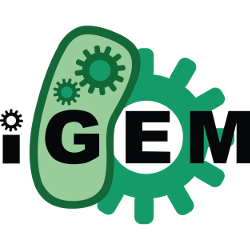Zigapusnik (Talk | contribs) |
|||
| Line 73: | Line 73: | ||
<!-- menu goes here --> | <!-- menu goes here --> | ||
<!-- content goes here --> | <!-- content goes here --> | ||
| − | + | <div class="main ui citing justified container"><h1 class = "ui left dividing header"><span class="section"> </span>Collaborations</h1> | |
| − | + | <div class = "ui segment"> | |
| + | <p>Science is no longer an individual and isolated work, but has transformed profoundly. It’s now teams and collaborations that drive high-impact science. | ||
| + | Therefore we tried to connect with other teams who participate in iGEM competitions during our work. This led us to interviews and skype meetings, which resulted | ||
| + | in formation of both friendship and professional bonds across the world. With synthetic biology being a quite specific area of expertise one who deals with it can | ||
| + | sometimes feel quite isolated, so it was incredibly exciting for us to be able to meet other young people with the same love and passion for science as our own, | ||
| + | whom we hardly wait to meet in Boston. </p> | ||
| + | <p>We consider collaboration or providing helpful information a very important part of this project and science in general. It is the base for future project even beyond iGEM. </p> | ||
| + | <p>We had skype meetings with many teams, but would specifically like to point out some of that we were particularly fond of. </p> | ||
| + | <p>We talked to iGEM Team Graz (<ref>1</ref>) and shared with each other our concerns and project development as well as tackling practical problems which occur | ||
| + | after spending a lot of time in the lab. We talked about different methods and protocols each one of us is using and how those could be improved. | ||
| + | We each made some suggestions to the other team in terms of what else they could try to implement in their work. The project team Graz, whose project idea is | ||
| + | bacterial evolution and finding new selection markers, was, at the time, dealing with slow or even nonexistent bacterial growth in liquid media. Based on our | ||
| + | experience we made some suggestions, such as testing different concentration of antibiotic. We also suggested they might do some mathematical modeling to predict | ||
| + | the outcome of their bacterial fights and thus improve their project. They helped us with suggestions on how to handle our bacteria, which we use for plasmid multiplication, | ||
| + | even thought we work on mammalian cells in general. </p> | ||
| + | |||
| + | |||
| + | <div> | ||
| + | <figure data-ref="1"> | ||
| + | <img class="ui medium image" src=" https://static.igem.org/mediawiki/2016/4/4b/T--Slovenia--9.4.1.png "> | ||
| + | <figcaption><b> <i> Collaboration with the Graz team</i> | ||
| + | </figcaption> | ||
| + | </figure> | ||
| + | </div> | ||
| + | |||
| + | |||
| + | |||
| + | |||
| + | |||
| + | |||
</div> | </div> | ||
</div> | </div> | ||
| + | |||
</div> | </div> | ||
</div> | </div> | ||
Revision as of 15:27, 18 October 2016
Collaborations
Science is no longer an individual and isolated work, but has transformed profoundly. It’s now teams and collaborations that drive high-impact science. Therefore we tried to connect with other teams who participate in iGEM competitions during our work. This led us to interviews and skype meetings, which resulted in formation of both friendship and professional bonds across the world. With synthetic biology being a quite specific area of expertise one who deals with it can sometimes feel quite isolated, so it was incredibly exciting for us to be able to meet other young people with the same love and passion for science as our own, whom we hardly wait to meet in Boston.
We consider collaboration or providing helpful information a very important part of this project and science in general. It is the base for future project even beyond iGEM.
We had skype meetings with many teams, but would specifically like to point out some of that we were particularly fond of.
We talked to iGEM Team Graz (1) and shared with each other our concerns and project development as well as tackling practical problems which occur after spending a lot of time in the lab. We talked about different methods and protocols each one of us is using and how those could be improved. We each made some suggestions to the other team in terms of what else they could try to implement in their work. The project team Graz, whose project idea is bacterial evolution and finding new selection markers, was, at the time, dealing with slow or even nonexistent bacterial growth in liquid media. Based on our experience we made some suggestions, such as testing different concentration of antibiotic. We also suggested they might do some mathematical modeling to predict the outcome of their bacterial fights and thus improve their project. They helped us with suggestions on how to handle our bacteria, which we use for plasmid multiplication, even thought we work on mammalian cells in general.




